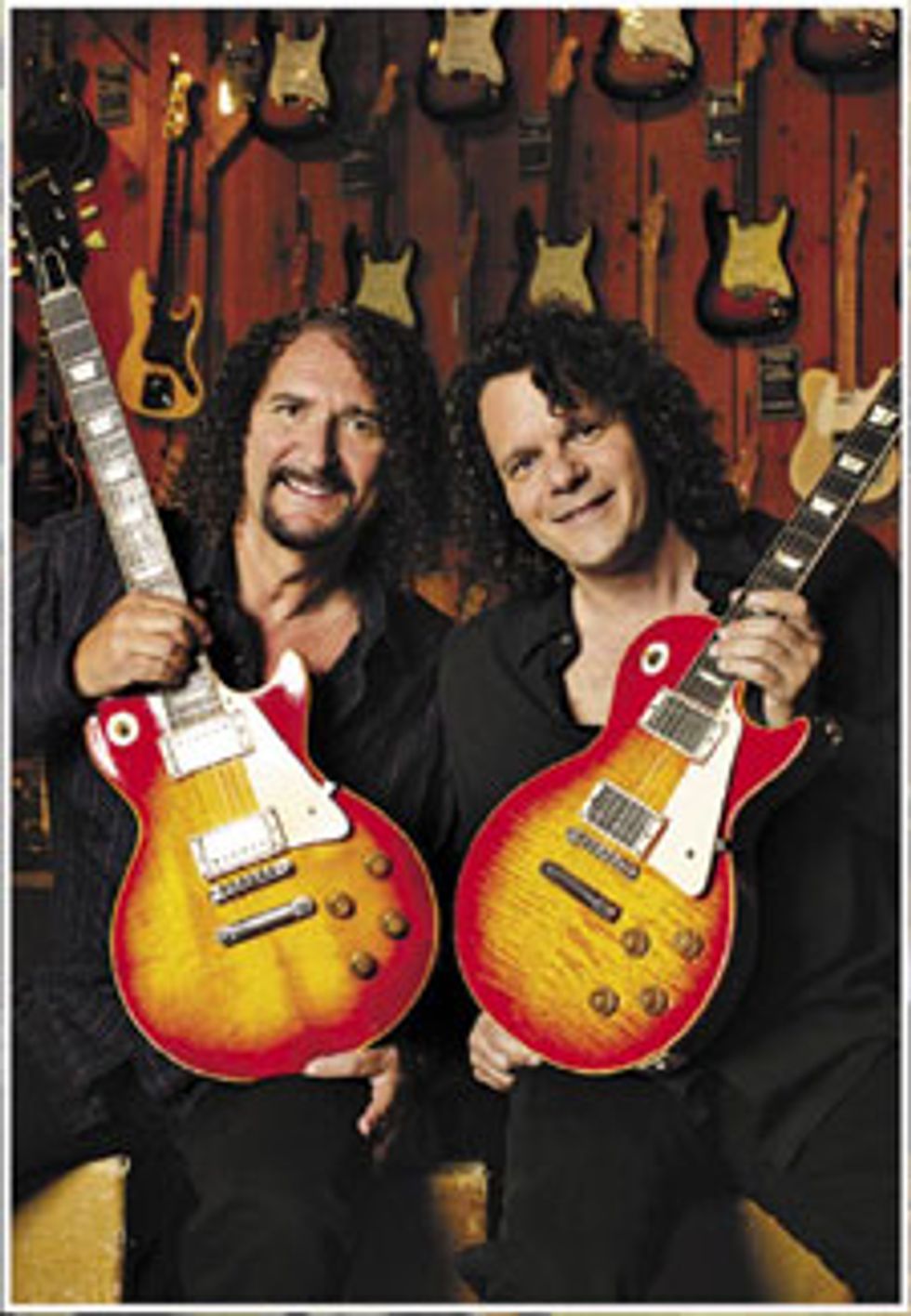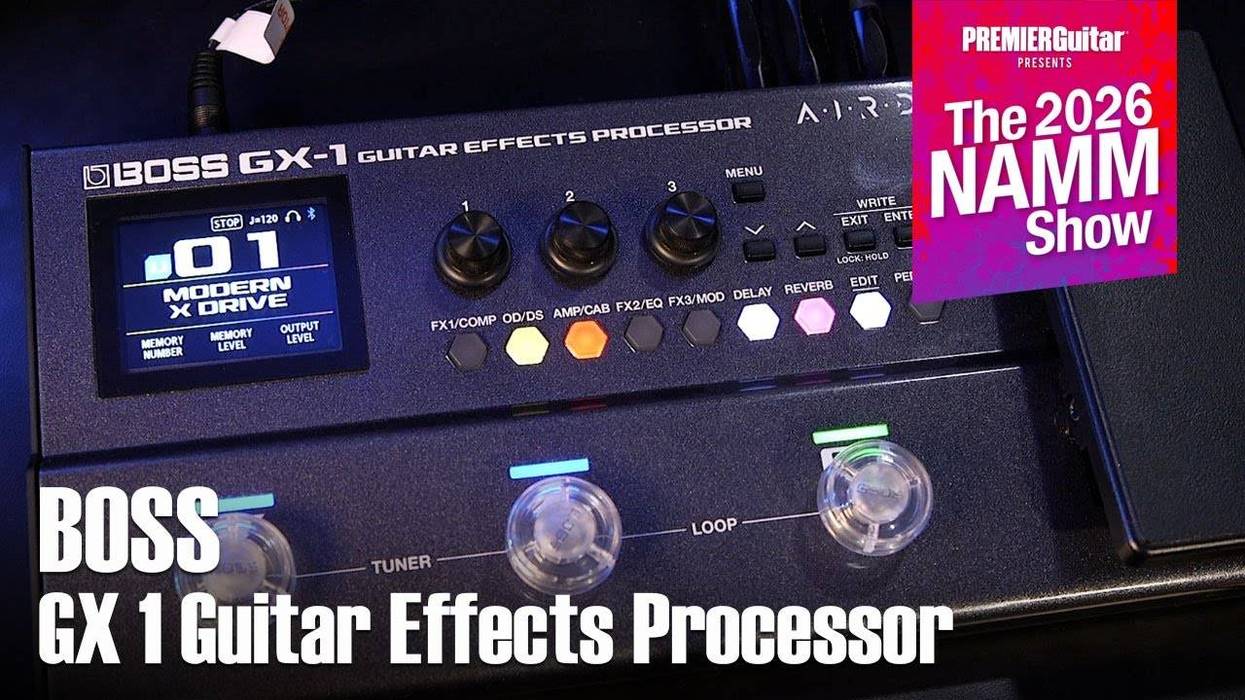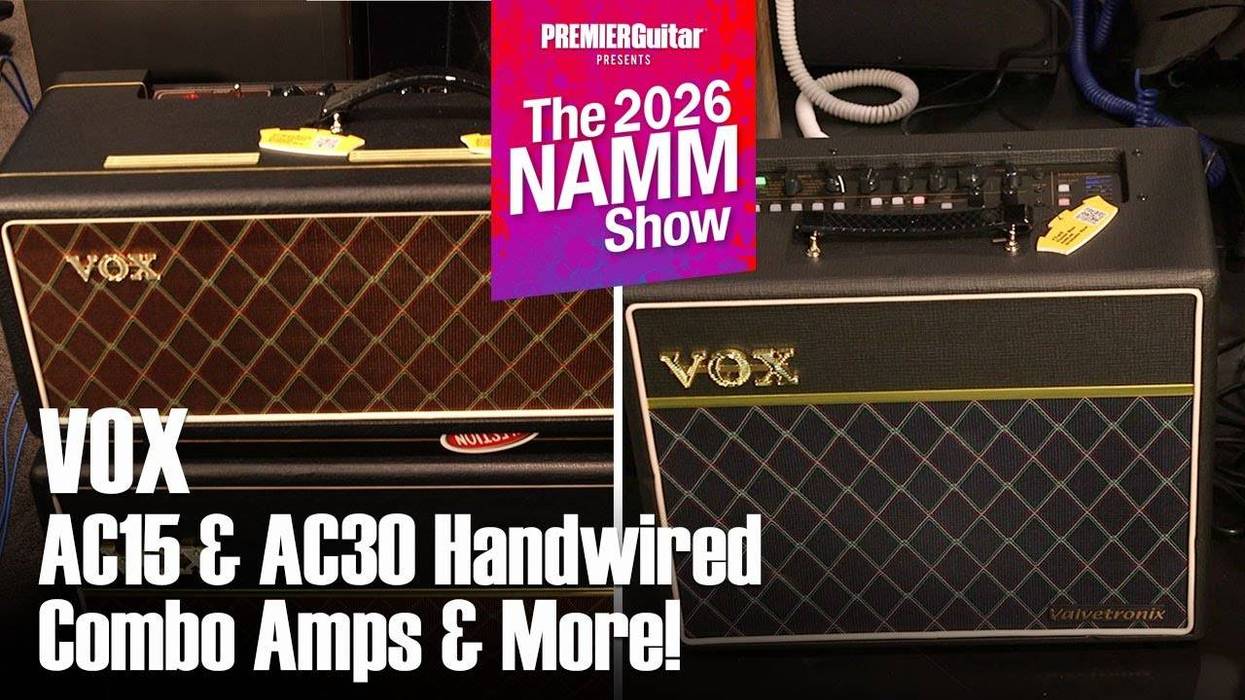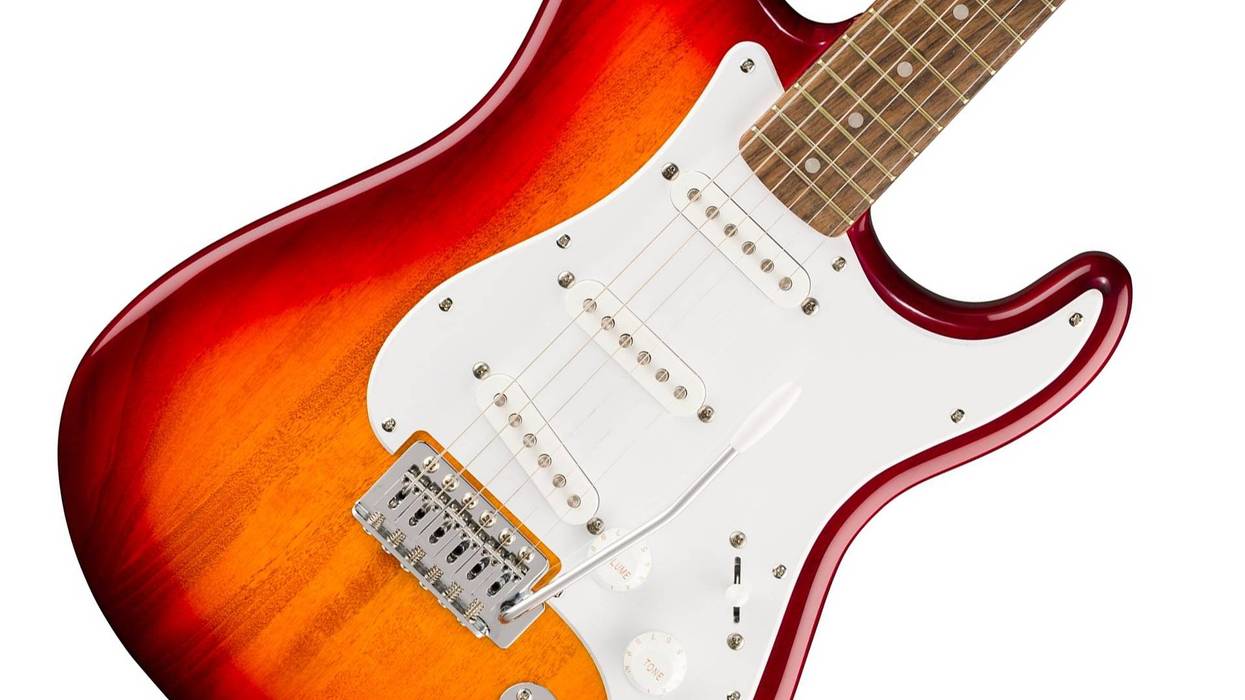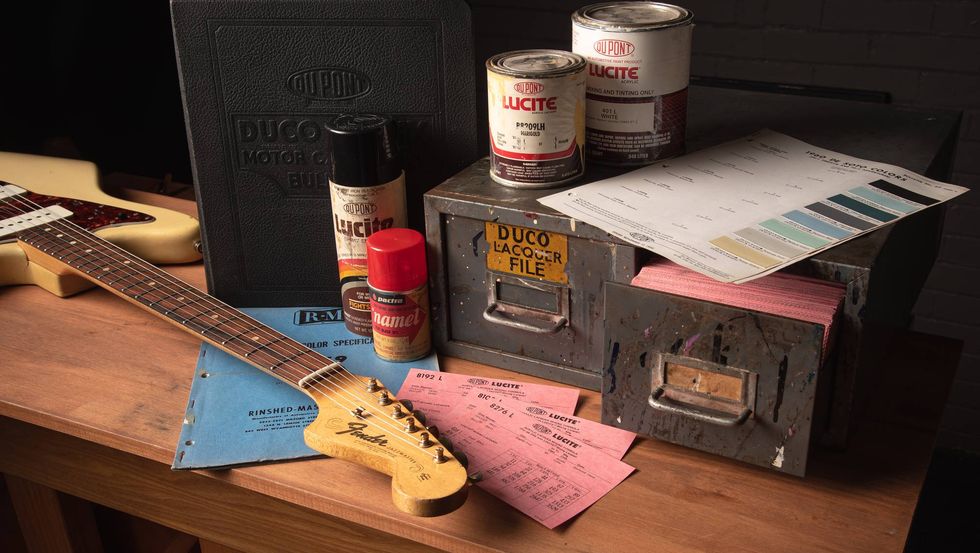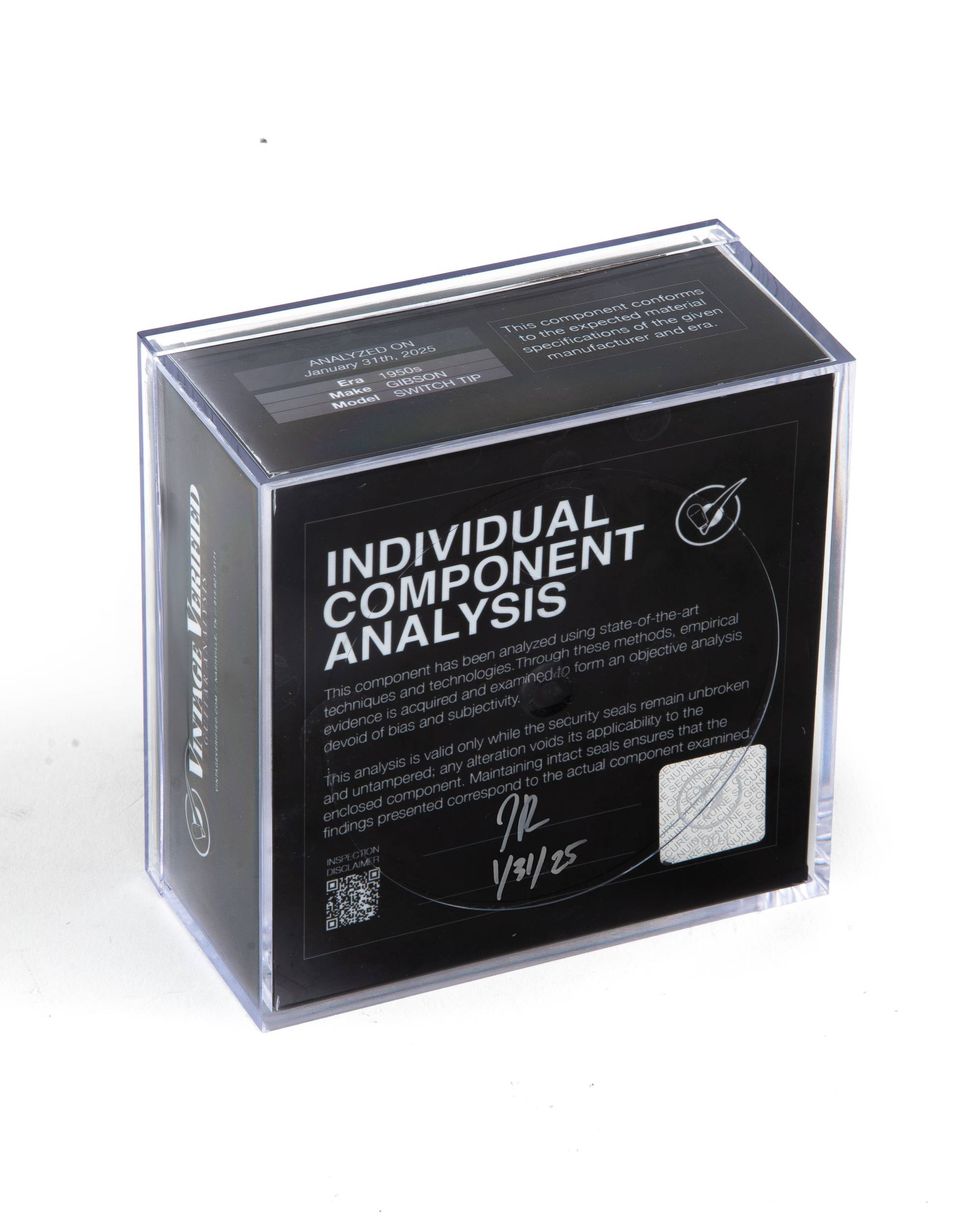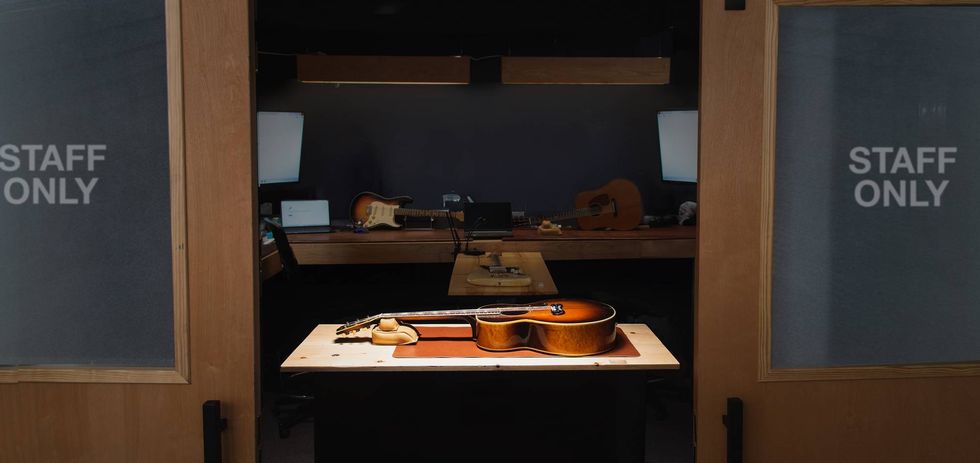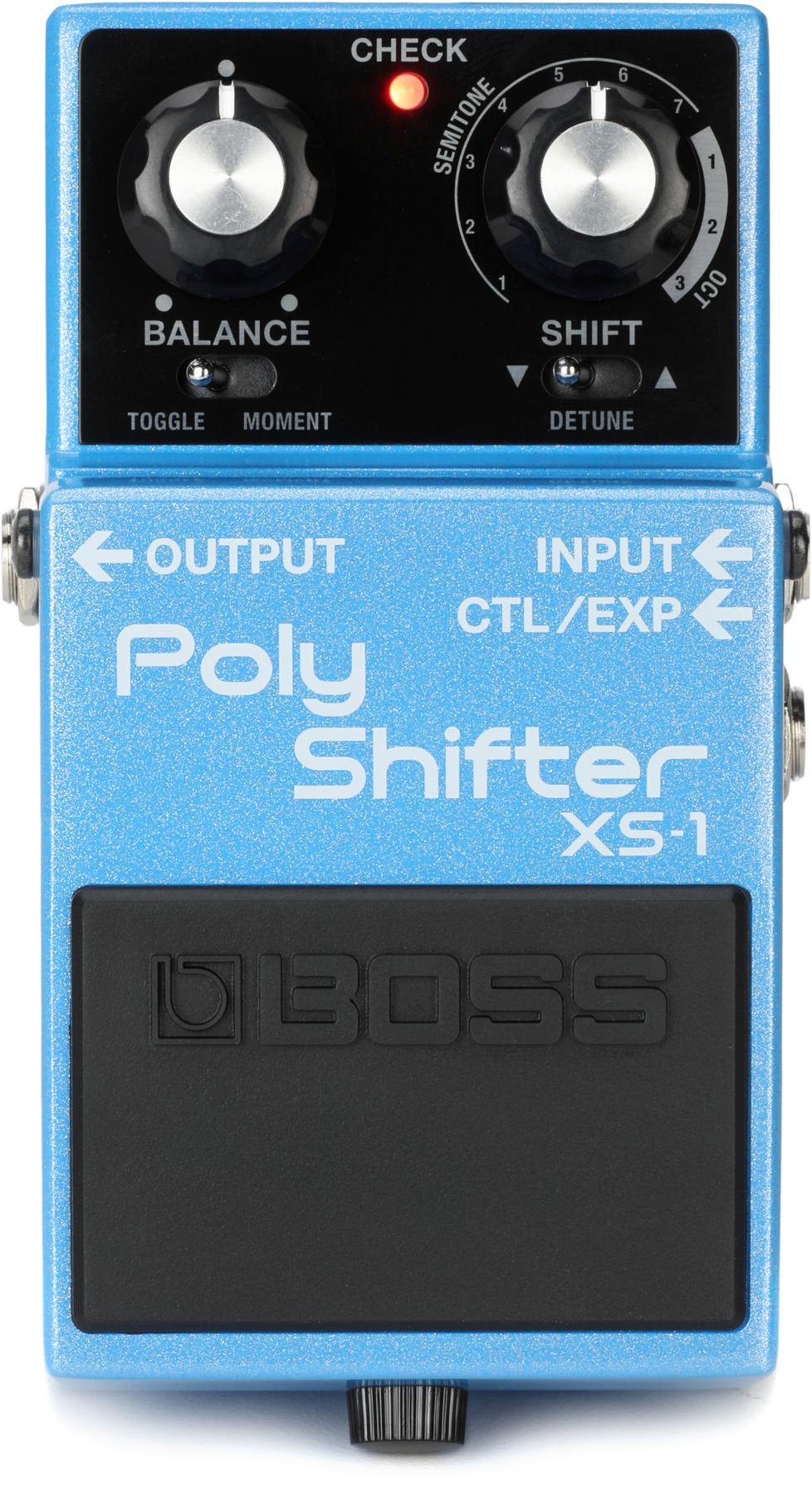|
This place is the Hollywood Vintage Room. Born in 1994, the Hollywood Vintage Room was the brainchild of Guitar Center CEO Larry Thomas. In 1995, Thomas brought on two men whose names would become synonymous with vintage guitar collecting: Dave Belzer and Andrew Berlin – the Burst Brothers, named for a shared love of Sunburst Les Pauls. Curators of a virtual guitar museum, the two scour the earth for hidden six-stringed treasures, and have amassed a collection so expansive that a second Vintage Room was opened in Manhattan.
The two are responsible for the most expensive guitar purchase of all time – Eric Clapton’s Blackie for a jaw-dropping $959,500 – and for many of the great pieces available in the vintage room. Dave and Drew took some time out of their never-ending quest to talk to us about the Hollywood Vintage Room, the course of the vintage guitar market, and a little bit about their own collections, which, believe it or not, consist of more than just Bursts.
You have all of these amazing, historically significant guitars, as well as the financial means to acquire others as they become available. Do you feel like you have a part in preserving history through buying these guitars and keeping the collection available for people to enjoy?
Drew: One of the most exciting things in that vein I can tell you about is that I found the guitar Woody Guthrie originally wrote “This Land is Your Land,” on, and it came from the actor Eddie Albert before he passed away. Woody carved his name on the back of the guitar and gave it to Eddie. To me, that’s what I love about what I do; it’s like being an explorer and discovering uncharted territory.
Dave: The main thing going into an auction is to do what we can to get these guitars, so they don’t end up in someone’s private collection or under somebody’s bed. We want people to be able to appreciate and enjoy them.

Do you try to carry that same idea – that same feeling of pride in bringing these to the public – over to the guitars you offer for sale?
Dave: Oh, of course. There is one thing Drew and I have tried to do since we first started doing this for Guitar Center 12 years ago, and that is try to buy the cleanest, best guitars we can. We’re both players, and that’s very important to us. We just don’t pick them up and look at them; we play them, and make sure they’re good guitars at that level first. We want to pass them down to customers and have them enjoyed.
Drew: When we sell a guitar, a lot of the time, we’ll hook up the person who buys the guitar with the person who sold it to us. Often, the guitar is very sentimental to the seller, and they would like to know who ends up with it. In several cases, we’ve put those two sides in touch and they’ve remained friends for years and years.
Do you get most of your instruments from people bringing them in, or by going to guitar shows, or through another process entirely?
Drew: The way that we find these pieces is that we’ve been doing this since the late ‘60s, and we have contacts that we’ve remained friends with. When I found something that was really incredible, I always said, “When you are ready to sell it, let me know.” The other way people find Dave and I is they get referred. We’ve developed a reputation of being the go-to guys.
Dave: We have 200 stores, and a lot of those are located in small towns, and they have become places for people to bring their guitars in and get them looked at. Believe it or not, a large number of vintage instruments are still coming from original owners. The people that bought these instruments new in the ‘40s and ‘50s are starting to pass on, and their children are letting the guitars go.
Do you guys deal with dealers or just private buyers and sellers?
Dave: We deal with other dealers, sure. It’s kind of a small little world, so we all work with each other. Usually it’s at guitar shows; when we buy at a guitar show, most of what we buy is from dealers.
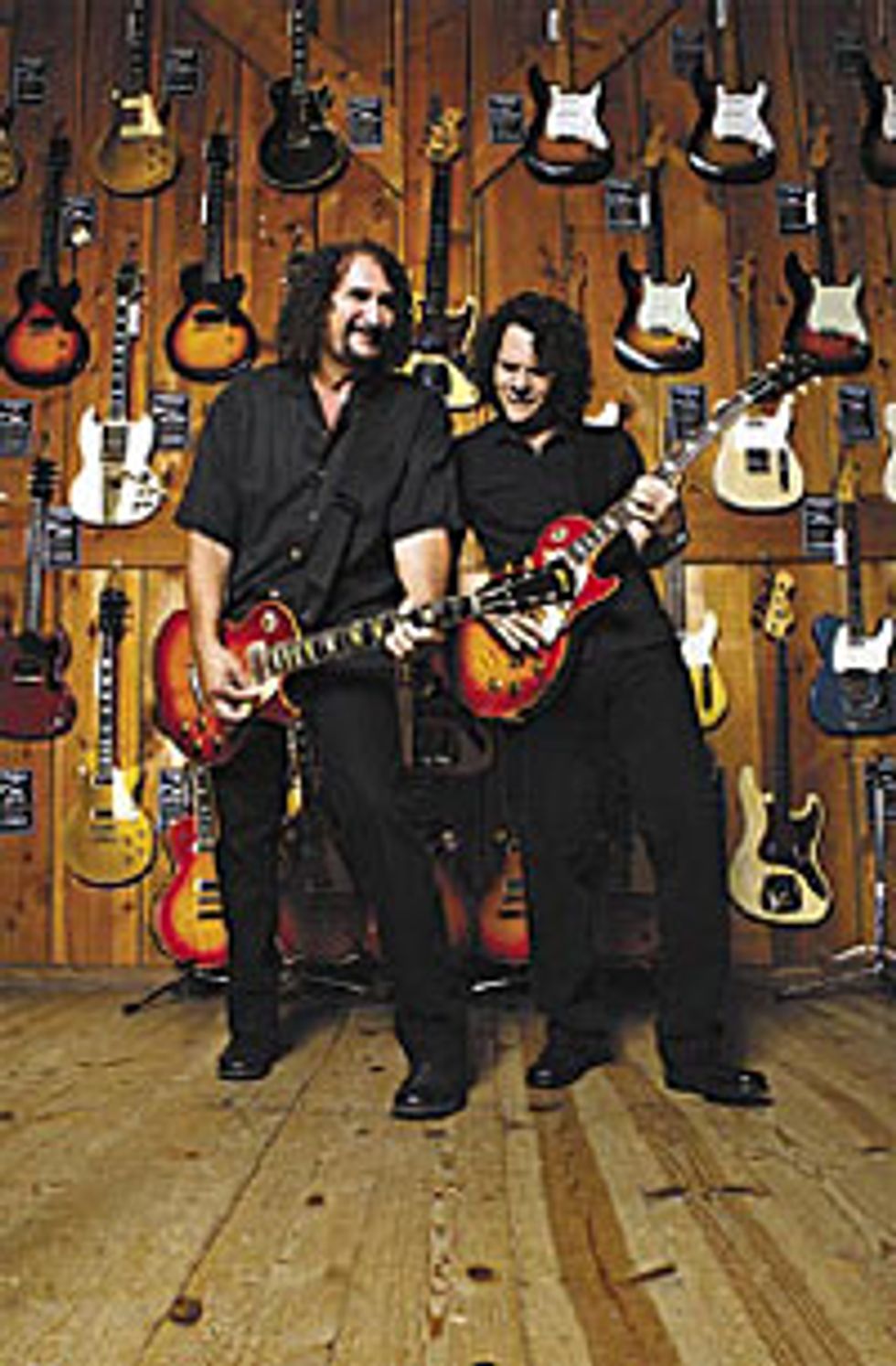 Do you find it’s harder to locate good guitars now than when you opened 12 years ago?
Do you find it’s harder to locate good guitars now than when you opened 12 years ago? Dave: It’s almost like you have to wait for somebody to let something go that’s been in a collection. If you go to guitar shows these days, it’s not like it was ten years ago. A decade ago you might have 100 people in line, and a third of them might have had tweed and brown cases in their hands. Nowadays, you might have 100 or 200 people in line, and you’re lucky if there are four or five cases, and even those are probably new cases, not old ones. It is tougher to find good pieces now.
Drew: It is harder, because there are only so many of these guitars made, and the more that are in collections and don’t come out, the fewer there are. That’s what dictates the price of the guitars, really.
Do you think this difficulty in finding pieces gives more importance to the service you provide?
Dave: Our greatest resource is that – between the two of us – we’ve been doing this for so long, that we’ve developed a network, a big group of people that are out there looking for guitars as well, and we are able to purchase guitars from them.
Drew: We’ve never been afraid to step up and pay the right price for the right guitar. They have to be good, and they have to be original for us to buy them.
Do you guys have wish lists for certain customers?
Drew: Dave and I have a relationship with most of the successful producers in Hollywood. Commonly what happens is they will get a new project or a new band and they’ll bring them in to meet us, and almost like a tailor we will sit down with the artist and find out exactly what they are looking for, what the producer wants on the record, and we recommend what might work for them.
How do you determine which instruments to keep?
Dave: We sell a majority of what we buy, but most of the guitars that aren’t for sale have been celebrity-owned. There are a couple of exceptions – we have one of the earliest 1700s guitars built, made in Spain. That is in our Hollywood store and isn’t for sale. A lot of original lap steels we have in the Hollywood store aren’t for sale either, mainly because they’re more decorative.
What are some of the more exotic pieces that the Vintage Room has that people might not be aware of?
Drew: We have some of the earliest Martins ever built – the first X-braces – from the Chinery collection. Martin has been in to document these guitars; they have Stauffer headstocks, with six-on-aside instead of three-on-a-side tuners, like current Martins.
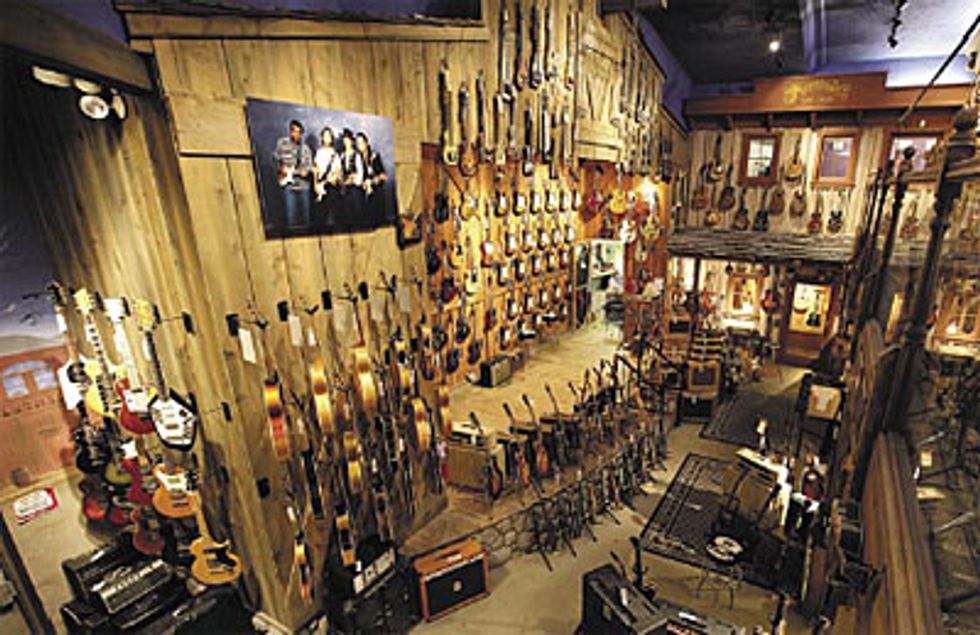 Dave: Other than the Clapton, we have one of Eddie Van Halen’s guitars – one of the red Charvels with the striping on it from the early tours – one of Scotty Moore’s L5s, one of Stevie Ray Vaughan’s guitars, and a number of his pedals. Drew: We also have D’Angelicos and D’Aquistos. These guitars are from the ‘40s and ‘50s and were hand-carved by luthiers who sometimes took six months to a year to finish one guitar.
Dave: Other than the Clapton, we have one of Eddie Van Halen’s guitars – one of the red Charvels with the striping on it from the early tours – one of Scotty Moore’s L5s, one of Stevie Ray Vaughan’s guitars, and a number of his pedals. Drew: We also have D’Angelicos and D’Aquistos. These guitars are from the ‘40s and ‘50s and were hand-carved by luthiers who sometimes took six months to a year to finish one guitar. Do you still collect on your own?
Drew: I started out in this business because I was always trying to find something better than the ’56 Les Paul that I started out with. Nothing’s ever been better, and I still have that guitar. I don’t have millions of dollars worth of guitars, but I have special ones that are significant to me.
Dave: I still collect occasionally. I’ve been doing this a long time, and I’ve kind of put some guitars away over the years, but things are expensive nowadays [laughs]. It’s different when you’re playing with your own money.
After the Bursts, what is your next favorite type of guitar to buy right now?
Dave: I’d say late ‘50s, early ‘60s 335 Gibsons, custom color Stratocasters and Fender slab-boards from that ‘59 to ‘63 era. Pretty much anything pre-CBS, especially in a custom color.
Drew: Generally the first run of anything, like a Blackguard Fender Telecaster from ‘50-‘54, a Broadcaster or Nocaster – the first series of guitars that Fender made.
| “We’re just the keepers of these things – they’re going to outlive all of us and be passed down.” |
Do you feel that the choices you and Drew make affect the vintage market?
Dave: I think they have over the last ten years or so. I’ve noticed that other dealers pay attention to what we buy at a show – what we think is hot. I think we’ve lucked out and made some good guesses throughout the years.
Drew: We started targeting Gibson guitars with P-90 pickups, that weren’t super valuable at the time, but were great guitars; guitars like the 330 and the Les Paul Juniors. We bought every one at the Arlington show in ’95 – probably 40 P-90 guitars – and hung them on the wall. It made a big impression.
Dave: With the P-90s, dealers were like, “What are these guys doing?” But we just bought every one we could find. It turned out to be a smart thing to do, because they began to escalate after that.
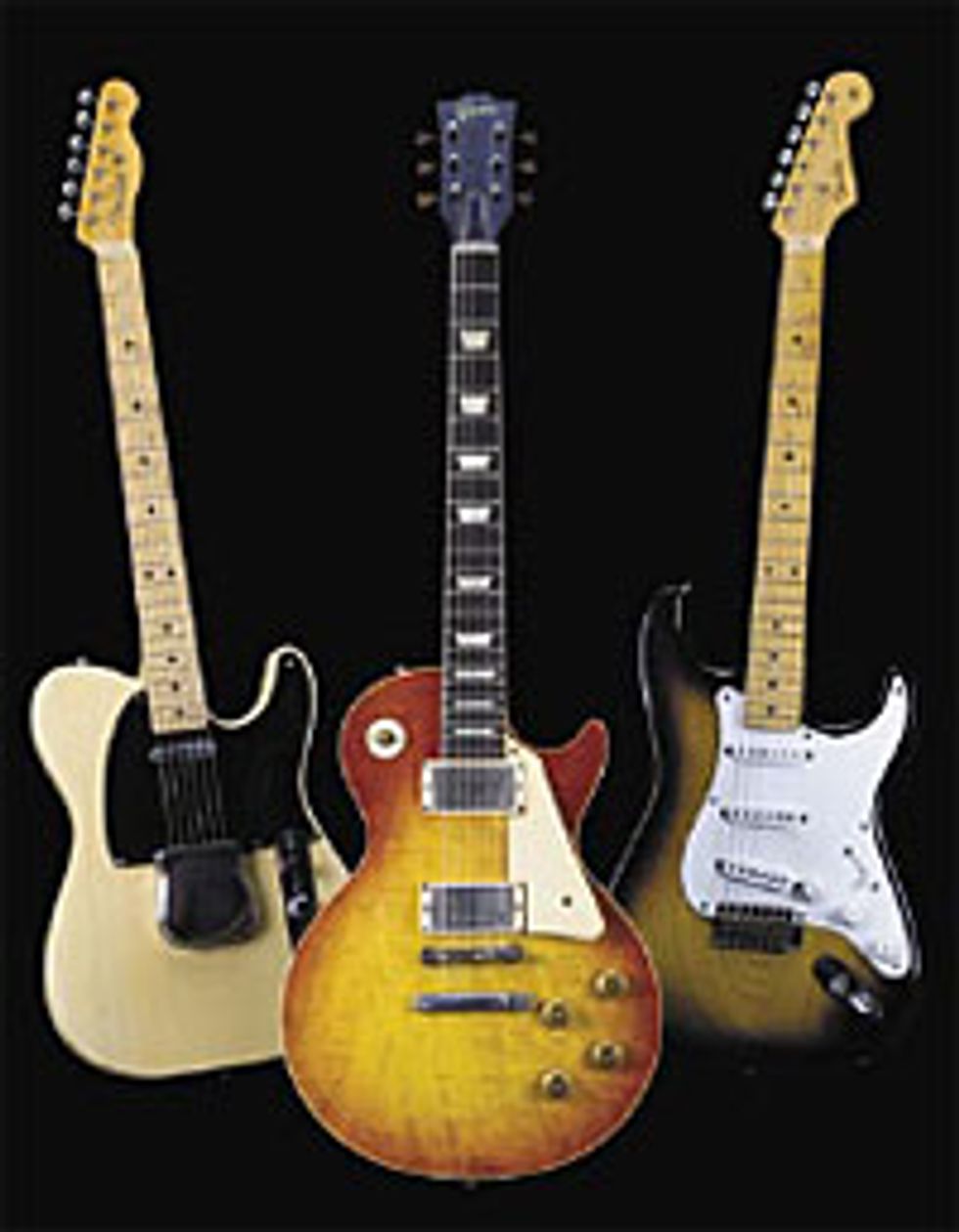 So you’re responsible for the fact that I can’t afford a Junior right now.
So you’re responsible for the fact that I can’t afford a Junior right now. Dave: I won’t say we’re responsible for that [laughs]. But I can say that we probably didn’t help the situation. You know, it is all supply and demand, and it amazes me constantly. Not only what I have to pay for stuff these days, but also what it sells for.
Do you think the vintage market will continue to increase at its current rate?
Dave: In the past 20 years, I have yet to see it decrease, although I can’t imagine it will continue to increase at the same rate it has in the last year or two. In some ways we’ve seen that in the last six months with sunburst Stratocasters; for the first time in all the years I’ve been doing this, they’ve actually gone down a little bit.
Drew: People talk about the price and the value and when the guitar was manufactured, but what a lot of people don’t realize is that these guitars are so expensive and so desirable because of the way they make you feel. You express yourself with a guitar – that’s why they’ve become iconic.
Dave, you had mentioned earlier that collecting as an individual had gotten expensive. Has it reached the point where you’ve retired any guitars in your personal collection from playing duties, to keep them just as investments?
Dave: No. One thing I want is to be able to play the guitar. If it’s a guitar I collect, it has to be a player. I still play out with a ‘62 Fiesta Red Strat and a ‘58 Les Paul Custom. I try not to think about what they’re worth, and I never let them out of my sight, but I’ve played them for so long. They’re the guitars I play.
Where do you see this all going, for yourselves and the Hollywood Vintage Room?
Dave: You know, I just see this all continuing to move forward. Drew and I approach it like this: these are guitars and it should be fun. It can be win-win for everybody. We do our best to provide great service to a lot of people, and we try to be very upfront about our guitars and their descriptions. You will see more involvement from the high-dollar, investor-type people, but it will all continue.
Drew: We’re just the keepers of these things – they’re going to outlive all of us and be passed down. We have to enjoy that in the brief time that we can live with them and play them and experience them. We are the caretakers for a short time.
Hollywood Vintage Room
323-874-2302
vintageguitars.net


